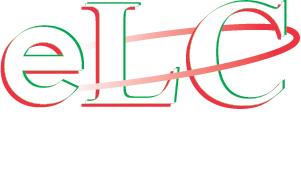


KM Asia is the largest Knowledge Management event in the Asia-Pacific region and gathers globally respected management through leaders and highly regarded knowledge management luminaries to share their experience, insight and knowledge with a high-level Asian audience. It attracts more than 700 participants from all over Asia annually, including Singapore, Malaysia, Brunei, Thailand, Indonesia, the Philippines, Hong Kong and Australia.
You may ask "Why is knowledge management important to every one of u?" Let me share with you my experiences from KM Asia 2010 that may interest you to join the next KM Asia session
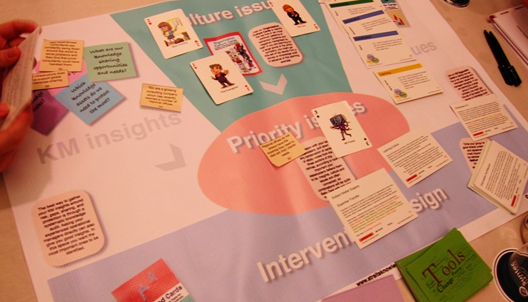
The session begins with an interactive icebreaking session. First we have to select two KM insights where we thought would caused a great impact to ones organisation. Method cards were used to identify areas in our current KM initiatives. This encourages conversation among the participants at every table as we discussed and contributed our views on issues.
As this is my first time participating in KM Asia, it was interesting to have speakers from all over the world, to share their KM experiences in their organisations.
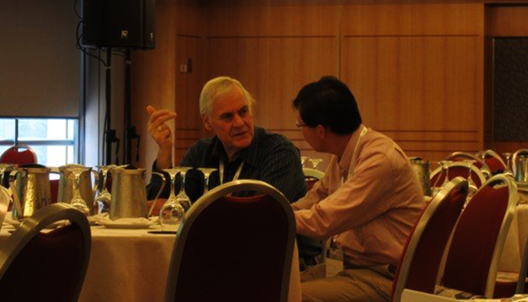
We have Ron Young who is a Chief Knowledge Officer. He started off the conference by introducing the key principles of inter-connectivity established in quantum physics.
He presented the Knowledge-Asset Framework which consists of Individual, Team, Organisation and Inter-Organisation and explained how each affects one another.
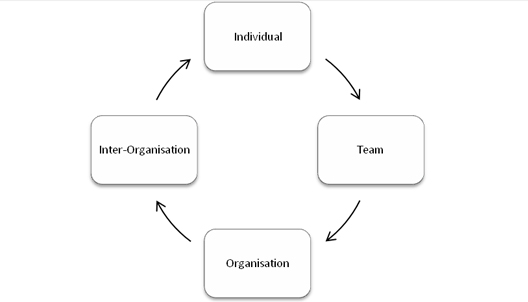
Another interesting sharing session by Doreen Tan, Head of Knowledge Management was how she handled the Youth Olympic Games by creating a learn-as-you-go culture and leveraging on KM to make the event a success. The four KM activities that she incorporated for the planning stage is as shown below:
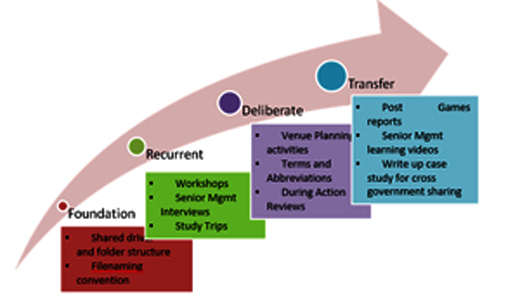
Through her sharing session, I realised the importance of documenting every activities in a proper manner for future references. To maintain the interest of the communities (we call them "Communities of Practice or Interest"), method like incentives or study trips can be an encouragement for their efforts which keep them motivated to follow the standard procedures. These procedures may be a tiring chore but with constant reminder that they are doing a good job for the event, they will be most glad to put in their all.
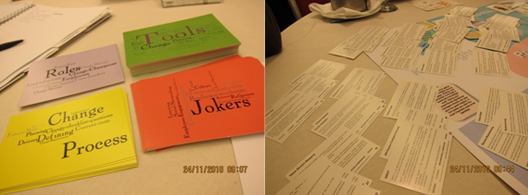
Another interactive icebreaker session on change management is where we looked into approaches and methods to successfully cultivate learning and sharing within the organisation. There were a whole list of approaches, processes and tools that I got to learn some new ones.
To begin the morning session, Dave Snowden, founder and Chief Scientific Officer from Cognitive Edge presented the concept of judgement as a means to re-examine not only the purpose but the nature of knowledge management.

After the break, Siew Hoong Aw from Shell Global Solutions shared his knowledge on the use of Wiki, an online encyclopaedia in the organisation. He shared with us how Wiki has become a successful tool in Shell as compared to having website, linking their documents but hard to make amendments as it requires programming knowledge. As for Wiki, it provides a bird eye view of the organisation documents which also allows permission control to whoever that is able to access.
To strengthen my understanding on the essence of knowledge management and the foundation of the KM structure, I was enriched by the workshop conducted by Ron Young. He shared with the group the four dimensions of knowledge management: personal, team, organisation and inter-organisation which are to be implemented fully as part of a holistic organisational approach for effective KM. This made me learnt the importance of each dimension together with good communication, collaboration, processes and integration, an organisation will then be able to reach the vision of KM.
I was glad to have attended this KM Asia where I got to meet experienced KM Practitioners, getting to know their experiences and capturing their explicit knowledge through workshops and sharing sessions. I feel KM Asia will be very useful for future projects and with this; I am able to apply the appropriate strategies and processes to achieve the mission diligently.